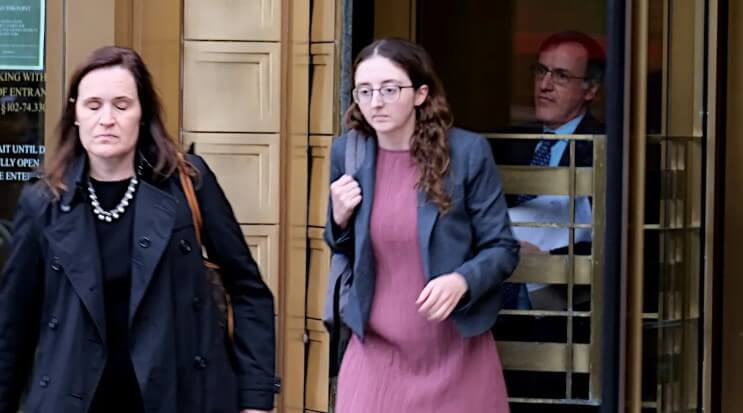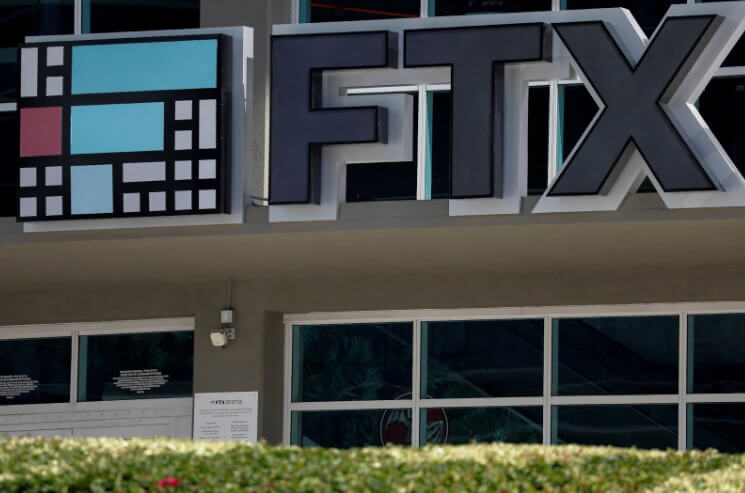In a courtroom drama that reads like a thriller, the FTX scandal has taken yet another intriguing turn. Caroline Ellison, the ex-CEO of Alameda Research and former girlfriend of FTX’s Sam Bankman-Fried, has made shocking allegations during her testimony. The allegations revolve around a complex scheme to recover frozen funds that involve Thai prostitutes, Chinese bribes, and cryptocurrency assets. You might also be interested: FTX Bankruptcy Fallout: Users Face Potential Phishing Threat

The Allegations Unveiled
Caroline Ellison’s second day of testimony in the FTX trial provided a jaw-dropping account of the lengths some were willing to go to recover a staggering $1 billion worth of frozen funds. According to her statements, FTX, the collapsed crypto exchange, allegedly resorted to using accounts registered to Thai prostitutes as part of their unconventional strategy.
The Bid to Reclaim Frozen Funds

FTX had found itself in a precarious position, with a substantial sum of funds frozen by the Chinese government. In an attempt to retrieve these frozen assets, the unusual strategy involving Thai prostitutes was reportedly employed. While the connection between sex workers and frozen crypto assets may seem puzzling, it’s crucial to consider the intricacies of this convoluted narrative.
The Chinese Government’s Frozen Funds
The frozen funds in question were linked to Alameda Research, where Caroline Ellison held a pivotal CEO role. Alameda was a crypto trading firm entangled in complex issues, including allegations of borrowing customer funds. The Chinese government’s decision to freeze these funds resulted from a money laundering investigation that did not directly implicate Alameda, as noted during the trial.
A Legal Effort Falls Short
Efforts were made to navigate the bureaucratic hurdles and unlock the frozen assets legally. A Chinese lawyer was hired to represent the interests of FTX and Alameda, but despite their best efforts, the attempt proved unsuccessful. The Chinese government remained steadfast in its decision to keep the funds locked away.
Cryptocurrency Assets and Chinese Officials
The situation took a bizarre turn when legal avenues hit a dead end. Caroline Ellison testified that the team devised a plan to send approximately $150 million in cryptocurrency assets to wallets believed to belong to Chinese officials. That was a bold and high-stakes move, carrying potential diplomatic and legal ramifications.
However, rather than openly discussing the plan, it was referred to in coded language in reports to Sam Bankman-Fried, maintaining an air of secrecy and deniability.
Unraveling a Web of Intrigue
Caroline Ellison’s testimony has added a layer of complexity and intrigue to the already convoluted FTX scandal. The allegations of utilizing Thai prostitutes and sending cryptocurrency assets to Chinese officials suggest a desperate attempt to regain control of frozen funds.
This case is a stark reminder of the lengths some entities may go when confronted with a financial crisis, even if it involves unorthodox and ethically questionable tactics.
Final Words
The ongoing FTX trial, with Caroline Ellison’s explosive testimony, reveals a narrative that extends beyond typical courtroom drama. It paints a picture of a crypto industry fraught with complex challenges, where unconventional strategies are employed to pursue financial objectives.
The outcome of this trial will undoubtedly shape the future of crypto exchanges and their handling of frozen assets.

